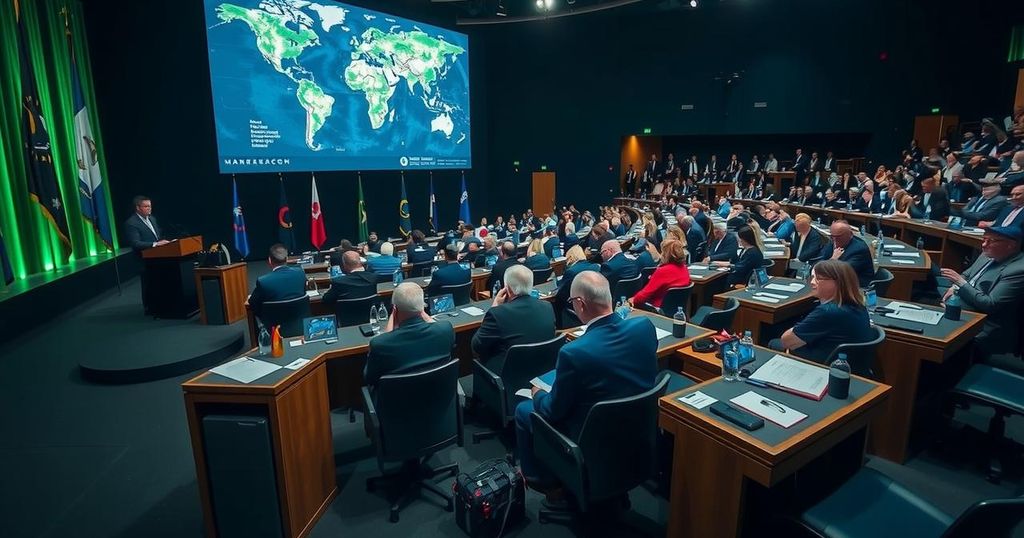Systemic Failures in Global Climate Action: A Call for Urgent Measures

The article argues that despite decades of climate conferences since the 1992 Earth Summit, global leaders continue to fall short in addressing climate change effectively. While some commitments have been made, such as financial pledges to assist developing nations, these efforts are outweighed by ongoing fossil fuel subsidies and rising emissions. To combat the climate crisis adequately, the article calls for immediate action, honest dialogue about trade-offs, and a shift in focus from long-term targets to real-world emissions reductions.
The global response to climate change since the inaugural Earth Summit in 1992 in Rio de Janeiro has been inadequate, despite ongoing conferences designed to create actionable strategies. Biodiversity is rapidly declining, and global temperatures have already surpassed 1.5°C—the critical threshold for climate stability. While some politicians and industry leaders exhibit a commitment to addressing climate issues, the tangible actions taken remain insufficient, with emissions continuing to rise globally.
Recent announcements at COP29, including a pledge of $300 billion per year to assist developing nations mitigate climate impacts, fall significantly short of the estimated $1.2 trillion annually necessary to meet climate goals. Moreover, developed countries still allocate over $620 billion in fossil fuel subsidies, undermining any progress made through financial support for clean energy.
The failure to drastically cut greenhouse gas emissions and shift governmental spending towards sustainable solutions reveals a troubling dissonance among global leaders. Experts highlight the urgent need for consistent and immediate emissions reductions across all sectors and advocate for substantial investments aimed at combating climate change, particularly in developing nations. Current pathways to achieving net zero emissions have proven inadequate due to their dependence on questionable carbon removal technologies and a lack of tangible results.
The COP framework itself necessitates reform, with suggestions to exclude nations that obstruct the transition away from fossil fuels. To address the dire trajectory of climate change, a portfolio of immediate measures must be employed, including methane reductions, shifts from livestock to plant-based protein sources, and significant investments in renewable energy and nuclear solutions.
Climate policies should align closely with actions that can be actualized in the near-term, emphasizing accountability for current emissions rather than relying on distant commitments. This commitment to immediate and substantial action is essential for ensuring a sustainable future, countering rhetoric that normalizes continued fossil fuel use as compatible with climate objectives. Only through this collective effort can society progress towards tangible climate goals and avert future catastrophic consequences.
The article highlights the ongoing shortcomings in the global response to climate change despite established frameworks for action, namely the annual COP conferences initiated after the Earth Summit in 1992. It elucidates the increasing urgency of climate issues, detailing the dire state of biodiversity, rising temperatures, and escalating greenhouse gas emissions. The text underscores the gap between governmental commitments on paper and the reality of their actions, calling for a critical reassessment of current policies and practices to achieve meaningful progress in combating climate change.
In conclusion, the current trajectory of climate inaction remains alarming, with global leaders failing to translate commitments into necessary actions. The disparity between pledges made at climate conferences and the actual financial and policy commitments illustrates a systemic reluctance to address climate change with the urgency it demands. A collective focus on immediate emissions reductions and accountability is vital for ensuring that future generations inherit a habitable planet. Only through decisive and coordinated actions can we hope to mitigate the devastating impacts of climate change.
Original Source: bylinetimes.com





